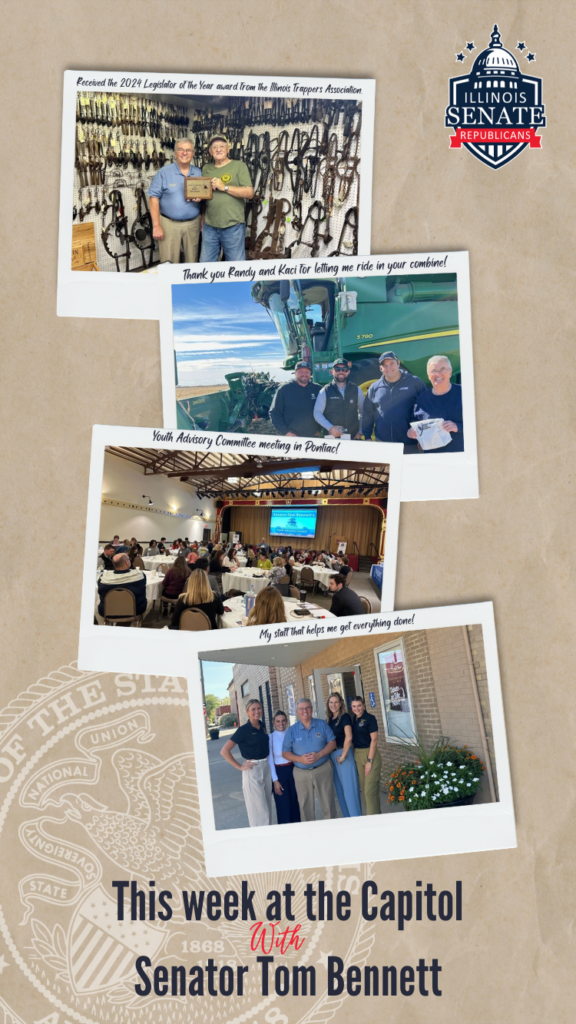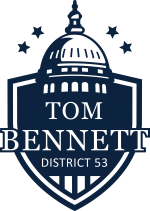
Feds Back Lawsuit Against Illinois Fee Ban
The federal government has stepped into the legal fight over a new Illinois law that could change how banks and credit unions handle transaction fees. The U.S. Office of the Comptroller of the Currency has filed an amicus brief supporting a lawsuit aimed at blocking the Illinois Interchange Fee Prohibition Act.
Passed earlier this year, the law would be the first in the country to ban banks from charging interchange fees on taxes and tips—a move critics say goes too far and could create headaches for retailers and consumers alike. Opponents argue it would force consumers to swipe their credit cards twice—once for purchases and again for sales tax. Federal officials claim the law interferes with their authority and threatens “safe and sound banking” by undermining fees that cover transaction costs and protect against fraud.
Supporters of the law, however, say banks are exaggerating, claiming they can easily separate taxes and tips from the fees without breaking the system. The case is set to be argued in court on October 30th.

Illinois Grocery Initiative Announces $11 Million in Grants for New Stores in Food Deserts
Round 2 of the Illinois Grocery Initiative’s “New Stores in Food Deserts” program is now open, offering critical grants to improve access to fresh, nutritious food in underserved communities. With $11 million in funding available, the program is designed to combat food insecurity by supporting the development of grocery stores in areas where fresh food options are scarce.
As a proud supporter of this initiative, Sen. Bennett helped pass the legislation/sponsored the legislation to ensure communities facing food insecurity get the resources they need.
Qualifying grocery stores must meet the following criteria:
- Be best classified as a supermarket or other grocery retailer in the 2022 North American Industry Classification System under code 445110, a meat retailer under code 44524, a fruit and vegetable retailer under code 44523, or a fish and seafood retailer under 44525.
- Be located in a food desert census tract (as defined in the NOFO).
- Earn less than 30% of revenue from alcohol and tobacco sales.
- Accept SNAP and WIC.
- Contribute to the diversity of fresh foods available in the community.
Awards will range from $150,000 to $2.4 million, with applicants required to meet a 1:3 match in funding. Eligible applicants include local governments and independent grocers or cooperatives with fewer than 500 employees and no more than four store locations.
The deadline to apply for the grant is December 2, 2024. For more information and to view the full Notice of Funding Opportunity, visit the DCEO website.

2024 Du Quoin State Fair Breaks Attendance Records
The 2024 Du Quoin State Fair broke its previous attendance records, attracting over 204,000 visitors during its 11-day run from August 23rd to September 2nd. This marked a major achievement for the annual event, surpassing the 2022 record of 171,000 attendees and setting a new benchmark for the Du Quoin Fair.
From the opening Twilight Parade to the final performance by Nelly, the fair attracted large crowds thanks to cooler temperatures, new attractions, and upgrades to the fairgrounds. A variety of performances, including headliners like Ashley McBryde, KANSAS, Chris Lane, and the Marshall Tucker Band, also brought in large crowds of fair attendees.
When combined with the Illinois State Fair’s numbers, the total attendance for both fairs surpassed 977,000. Planning is now underway for the 2025 Illinois State Fair, which is scheduled to run August 7th through the 17th, and the 2025 Du Quoin State Fair, scheduled for August 22nd through September 1st.

Did You Know?
It is about time for trick-or-treating!
With Halloween creeping closer, Sen. Bennett has some helpful safety tips to make sure your night of trick-or-treating is all treats and no tricks!
Stick to your local community’s designated hours and keep to the sidewalks to avoid any frightful falls. Adults should carry flashlights to light the way through the spooky streets. And before your little goblins dig into their candy haul, be sure to check everything first to keep things safe and sweet.
Additional Trick-or-Treating tips include:
- Choose flame-resistant costumes or use polyester/nylon for DIY outfits.
- Use bright, reflective clothing or tape to increase visibility.
- Opt for makeup over masks to avoid obstructing vision.
- Test makeup 24-48 hours ahead to prevent allergic reactions.
- Avoid decorative contact lenses without a prescription.
When it comes to enjoying Halloween treats and sweets, the FDA offers the following nutritional and safety tips for trick-or-treaters:
- Wait to eat treats until they’ve been inspected at home.
- Avoid unwrapped or homemade treats, and check labels for allergens.
- Parents of very young children should remove any choking hazards such as gum, peanuts, hard candies, or small toys from the Halloween bags.
Let’s make this Halloween a scream—in the best way!

How much do we owe?
As of the time of this writing, the State of Illinois owes $1,740,433,021.34 to state vendors, including 16,529 pending vouchers. This figure represents the amount of bills submitted to the office of the Comptroller and still awaiting payment. It does not include debts that can only be estimated, such as our unfunded pension liability which is subject to a wide range of factors and has been estimated to be more than $139 billion. At the same time last year, the state’s accounts payable stood at a little less than $2 billion.
This Week in the 53rd District
Working full-time to represent you!


